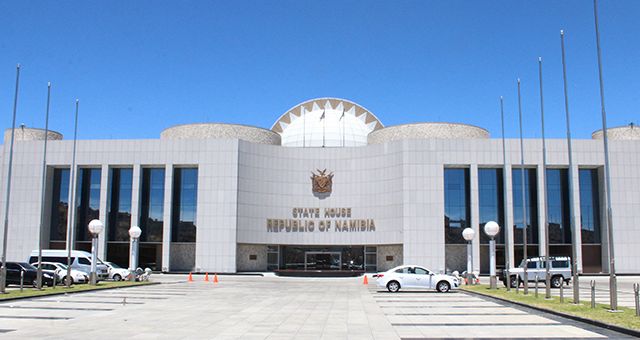RELENTLESS problems currently dogging emerging commercial farmers could soon become a thing of the past if various stakeholders had their way.
Dozens of Namibians move into commercial farming areas every year through the Government’s resettlement programme and the Affirmative Action loan scheme run by the Agricultural Bank (AgriBank). But some critics say the majority of the acquired farms become unproductive as these erstwhile communal farmers lack the necessary skills and expertise in scientific methods of farming.While the Ministry of Lands, Resettlement and Rehabilitation and AgriBank now review their programmes to include the training needs of the up and coming farmers, new initiatives geared towards the same purpose are also coming to the fore.Yesterday saw the launching of the Namibia Emerging Farmers’ Association (NEFA) whose main objectives is to provide managerial and technical training as well as extension services to resettled farmers to enhance their productivity.”We don’t see the programme as duplicating similar efforts in this direction by existing organisations, but rather by playing a complementary role to what is already in place,” said NEFA Chairman Eddy Kamboua.”Our activities will initially target resettled farmers but will later be extended to communal farmers in order to make the Government’s land reform process a success.”Deputy Minister of Lands, Resettlement and Rehabilitation Isak Katali hailed the emergence of NEFU and welcomed what he saw as an increasing number of Namibians willing to contribute towards the removal of constraints facing the land reform programme.Katali conceded that land reform will be a long process that will require a lot of money and other resources from the Government and other stakeholders.”Therefore, a small contribution by any citizen in this regard will go a long way in strengthening the land reform programme and thus assisting the Government in addressing the developmental needs of the people of Namibian,” he said.Noting the skill deficiency of resettled farmers, the deputy minister noted that money budgeted for reform will from now on include an allocation for training – unlike in the past.AgriBank, which in recent months was criticised for purportedly failing to provide training assistance and extension services to its AA loan farmers, pledged to change its current approach.AgriBank acting Chief Executive Officer Shihaleni Ndjaba revealed that the bank was in the process of reviewing its corporate strategy to, among others, assist emerging commercial farmers increase their productivity, “in order to reduce the rate of default on loans advanced to them.”AgriBank has donated a cheque of N$10 000 to the new association, while Sanlam Namibia donated office furniture valued at N$50 000.But some critics say the majority of the acquired farms become unproductive as these erstwhile communal farmers lack the necessary skills and expertise in scientific methods of farming.While the Ministry of Lands, Resettlement and Rehabilitation and AgriBank now review their programmes to include the training needs of the up and coming farmers, new initiatives geared towards the same purpose are also coming to the fore.Yesterday saw the launching of the Namibia Emerging Farmers’ Association (NEFA) whose main objectives is to provide managerial and technical training as well as extension services to resettled farmers to enhance their productivity.”We don’t see the programme as duplicating similar efforts in this direction by existing organisations, but rather by playing a complementary role to what is already in place,” said NEFA Chairman Eddy Kamboua.”Our activities will initially target resettled farmers but will later be extended to communal farmers in order to make the Government’s land reform process a success.”Deputy Minister of Lands, Resettlement and Rehabilitation Isak Katali hailed the emergence of NEFU and welcomed what he saw as an increasing number of Namibians willing to contribute towards the removal of constraints facing the land reform programme.Katali conceded that land reform will be a long process that will require a lot of money and other resources from the Government and other stakeholders.”Therefore, a small contribution by any citizen in this regard will go a long way in strengthening the land reform programme and thus assisting the Government in addressing the developmental needs of the people of Namibian,” he said.Noting the skill deficiency of resettled farmers, the deputy minister noted that money budgeted for reform will from now on include an allocation for training – unlike in the past.AgriBank, which in recent months was criticised for purportedly failing to provide training assistance and extension services to its AA loan farmers, pledged to change its current approach.AgriBank acting Chief Executive Officer Shihaleni Ndjaba revealed that the bank was in the process of reviewing its corporate strategy to, among others, assist emerging commercial farmers increase their productivity, “in order to reduce the rate of default on loans advanced to them.”AgriBank has donated a cheque of N$10 000 to the new association, while Sanlam Namibia donated office furniture valued at N$50 000.
Stay informed with The Namibian – your source for credible journalism. Get in-depth reporting and opinions for
only N$85 a month. Invest in journalism, invest in democracy –
Subscribe Now!










